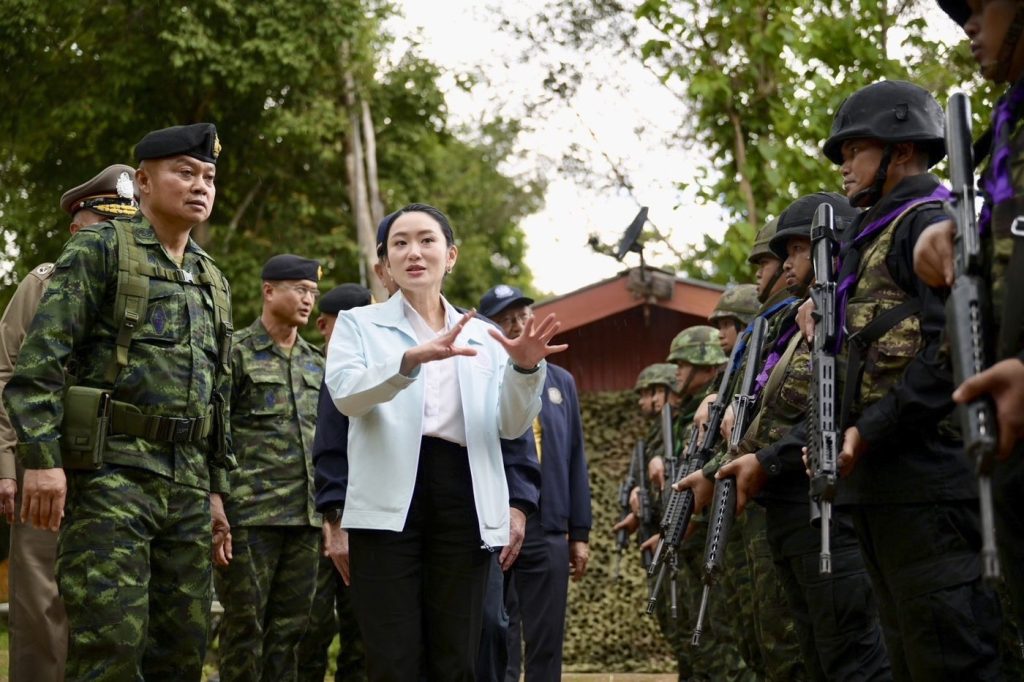BANGKOK (AP) — Thailand's Prime Minister Paetongtarn Shinawatra made a significant visit to the border with Cambodia on Friday, as calls for her resignation intensified following the release of a controversial phone conversation. This conversation featured a discussion with Cambodia's former leader regarding the recent tensions along the disputed border region.
The visit took place in the northeastern province of Ubon Ratchathani, near a small area that has been a point of contention with Cambodia. This location was previously the site of a brief confrontation on May 28, which resulted in the death of one Cambodian soldier. During her visit, a statement from Thailand's Government House indicated that Paetongtarn aimed to boost morale among soldiers tasked with protecting the nation’s sovereignty and interests.
Despite her intentions, the political climate remains charged, with several activist groups announcing plans to rally next week to demand Paetongtarn's resignation. The pressure on her leadership has intensified following the emergence of a 17-minute recording released by Cambodia's Senate President, Hun Sen. In the recording, Paetongtarn was heard advising Hun Sen against listening to "an opponent" in Thailand, likely referencing Boonsin Padklang, the regional Thai army commander who publicly criticized Cambodia amid the ongoing border disputes.
Prior to the leak, Paetongtarn had already faced criticism for what many perceived as a soft approach towards Cambodia. This criticism predominantly came from right-wing nationalists who have long been adversaries of her father, former Prime Minister Thaksin Shinawatra. The backlash intensified as the leaked conversation was interpreted as being dismissive of national concerns regarding border security.
During her visit, Paetongtarn was seen walking alongside Lieutenant General Boonsin Padklang, commander of the 2nd Army Area, which oversees the contentious border region. This display appeared to be an attempt to showcase unity between the government and the military, indicating a strategic alignment amidst the political turmoil.
Thailand's military has historically played a central role in the nation’s politics, having staged 13 coups since the establishment of the constitutional monarchy in 1932. Notably, Paetongtarn's father Thaksin was ousted in a military coup in 2006, and her sister Yingluck Shinawatra faced a similar fate when she was removed from power in 2014. The legacy of military intervention in Thai politics continues to loom large over the current political landscape.
In summary, Paetongtarn's visit to the Cambodian border underscores the complex interplay of national sovereignty, military influence, and political pressure in Thailand. The recent developments not only highlight the vulnerabilities in her leadership but also reflect the ongoing struggle for power within the broader context of Thai politics and its historical challenges.











